We are building the future of mental health
We are creating Swoan, a digital platform designed to address a wide range of psychological difficulties. Our goal is to make mental health care more accessible, affordable, and effective than ever. At the heart of the platform is an AI-powered agent that engages with you to understand your concerns, craft a personalized program tailored to your needs, and guide you step by step through the self-help modules. For those seeking additional support, licensed psychotherapists will be available.
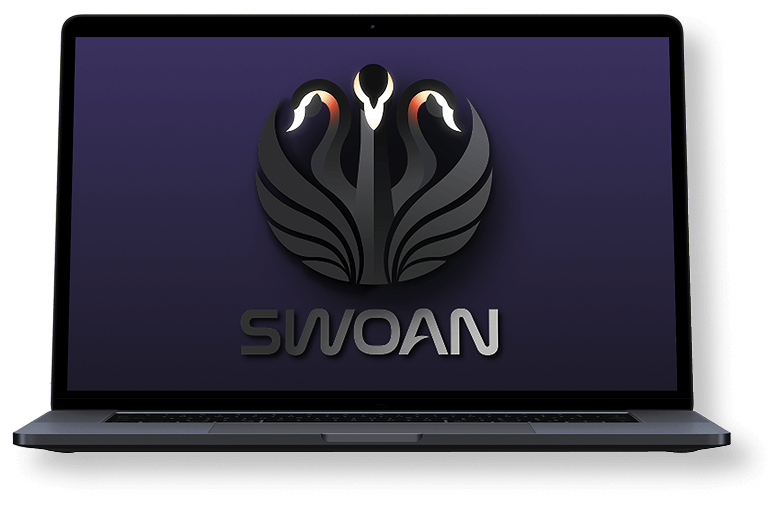
Insomnia and nightmares
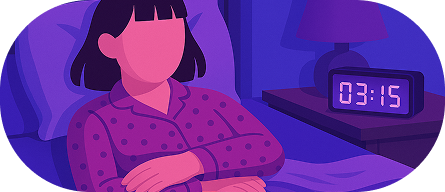
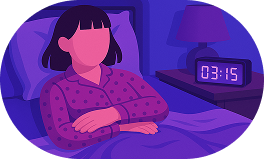
Generalized anxiety, panic, social anxiety, etc.
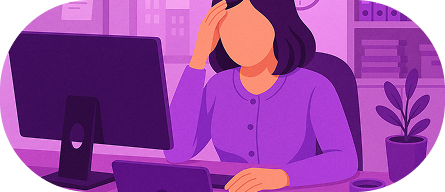
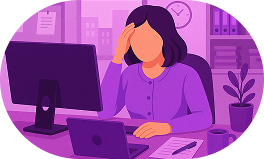
Loss of motivation, low mood, burnout, mourning, etc.
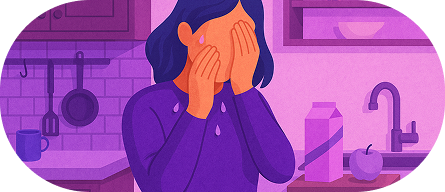
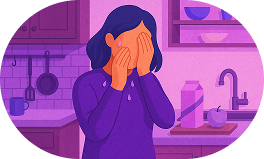
Intrusive memories, anger, guilt, etc.
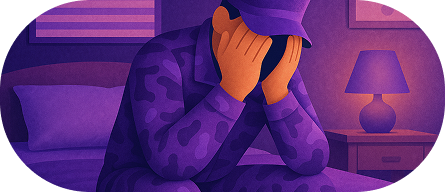
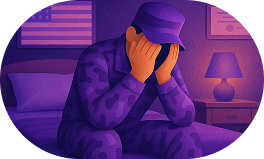
Substance abuse, smoking, gambling, etc.
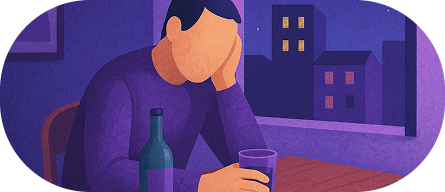
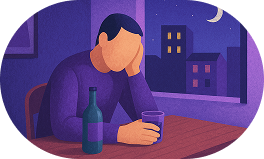

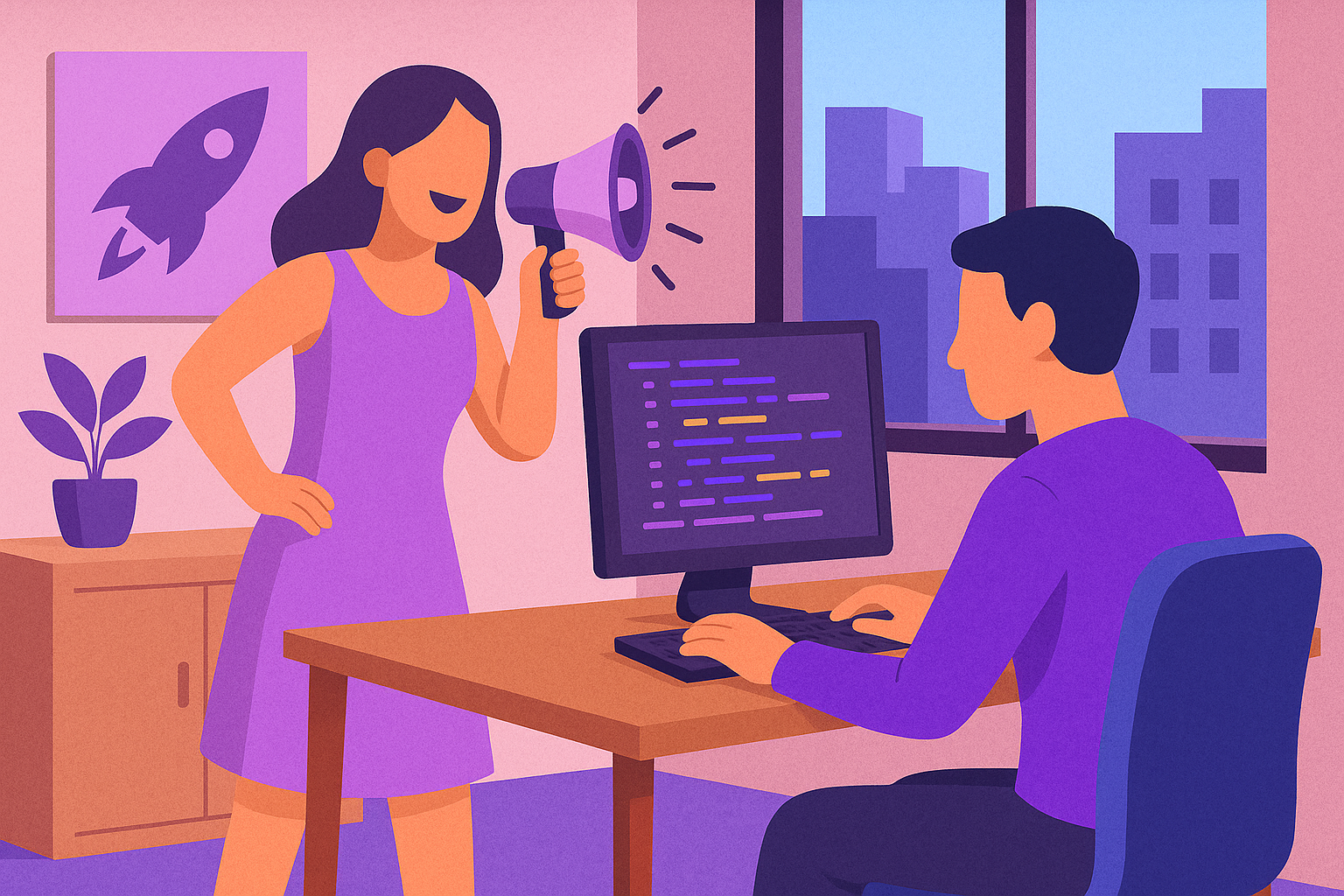
✓
Recommended tools
Below is a selection of curated digital tools for mental health and well-being. While we develop our own software solution, these tools may offer relief or improve your quality of life.
Depression; Anxiety; Panic; Social Anxiety; OCD; PTSD
Provider
Mental Health Online (previously “Anxiety Online”) is an initiative of Swinburne University’s National eTherapy Centre (NeTC) and funded by Australia’s Federal Department of Health.
Links
Language
English
Pricing
The seven programs are free.
Description from the Mental Health Online website
Depression Online program
Depression Online has 11 modules that you can do in your own time and have access to for 12 months. It provides information about depression and introduces skills and strategies that can help you to: identify the symptoms of depression; start using activity to improve your mood; discover and challenge unhelpful thoughts; boost your wellbeing by making lifestyle changes; plan to maintain your mental health gains after the course.
Panic Stop! program
The Panic STOP! program has 12 modules that you can do in your own time and have access to for 12 months. It provides information about Panic Disorder, with or without agoraphobia, and introduces skills and strategies that can help you to: identify the symptoms of panic disorder; self-monitor your specific panic symptoms and mood; gain control of physical reaction; learn how to cope with, and reduce panic attack; learn relaxation techniques; make lifestyle changes to improve your wellbeing.
Social Anxiety Online program
The Social Anxiety program has 12 modules that you can do in your own time and have access to for 12 months. It provides information about social anxiety and introduces skills and strategies that can help you to: identify and monitor the symptoms of social anxiety; learn relaxation and breathing techniques to reduce social anxiety symptoms; discover and challenge unhelpful thoughts; boost your wellbeing by making lifestyle changes; face feared social situations using exposure therapy; plan to maintain your mental health gains after the course.
Depression-Anxiety program
The Depression-Anxiety program has 12 modules that you can do in your own time and have access to for 12 months. Overall, the program will help you understand the symptoms you have been experiencing and teach you strategies to improve your wellbeing and mental health. The content aims to provide useful information and to introduce skills that can help you to manage symptoms and alleviate distress. You can do Depression-Anxiety at your own pace, and engage with the materials you find most helpful.
OCD Stop! program
The OCD STOP! program has 12 modules that you can do in your own time and have access to for 12 months. Our program combines cognitive behaviour therapy (CBT) with exposure and response prevention therapy (ERPT) which is considered the most effective treatment for OCD. It provides information about OCD and introduces skills and strategies that can help you to: improve your understanding of OCD; learn practical techniques to manage anxiety in OCD; discover ways to manage intrusive thoughts; be guided through exposure and how to manage your responses; learn how to maintain the gains from the course.
PTSD Online program
The PTSD Online program has 12 modules that you can do in your own time and have access to for 12 months. It provides information about PTSD and helps you to understand why it develops. PTSD Online also introduces the skills and strategies that can help you to: identify the symptoms of PTSD; learn relaxation techniques including progressive muscle relaxation; gain control of physical reactions; learn how to change any unhelpful thoughts and beliefs maintaining PTSD; plan to maintain your mental health gains after the course.
Anxiety and Worry Online program
The Anxiety and Worry program has 12 modules that you can do in your own time and have access to for 12 months. It provides information about anxiety and introduces skills and strategies that can help you to: understand and identify anxiety and worry; monitor and reduce specific anxiety symptoms; gain control of physical reactions; identify and replace unhelpful beliefs and ways of thinking; learn problem-solving techniques; make lifestyle changes to improve your wellbeing.
Guidance
On the Frequently Asked Questions (FAQ) page, we can read the following: “Users outside of Australia are welcome to complete any of our self-guided programs. Unfortunately, we are unable to offer our therapist assisted programs for anyone living outside of Australia.”
Outside of Australia, all programs are unguided, meaning that you complete them entirely on your own. Mental Health Online does not provide access to coaches or therapists. However, you can choose to work with a therapist you find independently.
Individuals residing in Australia have the option to complete any program in a guided format.
Platform
The programs are available on smartphone, tablet, or computer with an internet connection. There is no dedicated mobile app.
Data privacy
The privacy policy is available at this address.
Expert involvement
Mental health experts were involved in the development of the programs.
Scientific studies on the efficacy of the programs
Although the articles documenting the efficacy of the programs are not listed on the Mental Health Online website, we contacted them and they kindly provided a list of relevant peer-reviewed articles.
N = 225
N = 347
N = 13,414
N = 9394
N = 12,665
N = 65
N = 96
N = 222
Most psychological difficulties
Provider
This Way Up is a non-profit and joint initiative of St Vincent’s Hospital and the University of New South Wales. It is funded by the Australian Government Department of Health and Aged Care.
Links
Language
English
Pricing
The 12 treatment programs are free but require a prescription from a healthcare professional.
Australian residents can access the treatment programs without a prescription at AUD $59 for 90-days of access.
Australian residents can access the four wellbeing programs (i.e., stress management program; insomnia program; mindfulness program; and student wellbeing program) free of charge; these four programs are not available outside Australia.
Description from the This Way Up website
Depression program
This 6-lesson program teaches how to tackle feelings of persistent sadness, low motivation, irritability, tiredness, and low mood, and use helpful strategies to start feeling better.
Panic program
This 6-lesson program teaches how to tackle the sudden and frightening physical symptoms associated with panic attacks and use helpful strategies to manage fear and anxiety about having a future attack.
Social Anxiety program
This 6-lesson program teaches how to tackle excessive shyness, fears of being judged by others, and anxiety in social situations, and use helpful strategies to build your confidence and self-esteem.
Anxiety and Depression program
This 6-lesson program is about helping you tackle feelings of persistent anxiety, nervousness, low motivation, tiredness, and low mood, and use helpful strategies to stay well.
OCD program
This 6-lesson program teaches how to tackle frightening, unpleasant or unwanted thoughts and hard-to-control urges to perform repetitive behaviours, and use helpful strategies to overcome obsessions and compulsions.
Post Traumatic Stress program
This 8-lesson program teaches how to tackle frightening flashbacks, nightmares, anxiety, or low mood following a traumatic event or experience, and use helpful strategies to start feeling better.
Generalised Anxiety program
This 6-lesson program teaches how to tackle feelings of persistent and hard-to-control worry, anxiety, and chronic unease, and use helpful strategies for managing repetitive negative thoughts about the future.
Health Anxiety program
This 6-lesson program teaches how to tackle excessive worry about health, fear of developing an illness, and repetitive self-checking behaviours, and use helpful strategies to ease anxiety around health-related information.
Chronic Pain program
This 8-lesson program teaches practical strategies for coping with chronic pain, including how to improve your mobility, flexibility, and mental wellbeing so that you can feel better and reduce the impact of pain on your daily life.
Mindfulness-Enhanced CBT program
This 6-lesson program combines the cognitive-behavioural strategies taught in the Anxiety and Depression Program, with mindfulness skills and meditation training.
Perinatal Anxiety and Depression programs
These 3-lesson programs teach how to tackle feelings of anxiety, worry, and low mood during pregnancy and in the postpartum period to help mums build confidence and improve the way they feel.
Teen Worry and Sadness program
This 6-lesson program is designed to help young people (aged 12 to 17) manage feelings of stress, anxiety, and low mood, and use helpful strategies for building confidence when tackling common adolescent experiences.
Guidance
This Way Up does not provide access to coaches or therapists. However, since access to the programs requires a prescription, the mental health professional making the prescription might offer you some guidance.
Platform
The programs are available on smartphone, tablet, or computer with an internet connection. There is no dedicated mobile app.
Data privacy
The privacy policy is available at this address
Expert involvement
Mental health experts were involved in the development of the programs.
Scientific studies on the efficacy of the programs
The Climate Panic program of Internet-based treatment for panic disorder:
A pilot study
N = 10
We were unable to identify studies testing this program. However, it is worth noting that this program was adapted from the adult Anxiety and Depression program to be more suitable for young people from 12-17 years of age. The adult Anxiety and Depression program has been tested in several studies.
Depression, Anxiety & Stress
Provider
Black Dog Institute is an independent Medical Research Institute, non-profit organization located within the Prince of Wales Hospital Campus and affiliated with UNSW Australia (the University of New South Wales).
Link
Language
English
Pricing
The myCompass program is free.
You will be asked to enter a postal code on signing up. Only Australian format – four numbers in a row – is accepted. We were able to create an account with “2000” as the postal code.
At the time of writing this review, their Terms of Use do not state that myCompass is exclusively for Australian residents.
Description from the Black Dog Institute website
myCompass offers 14 online learning activities that deliver evidence-based psychological techniques. myCompass mood tracking features allows you to track your thoughts, feelings, and behaviours in four areas – depression, anxiety, stress, and sleep. In addition, it provides graphical feedback to help you better recognise the patterns and triggers that impact your mental health, both positively and negatively. The learning activities deliver proven psychological techniques doctors and psychologists use, such as cognitive behavioural therapy (CBT).
Guidance
myCompass is unguided, meaning you complete the activities entirely on your own. Black Dog Institute does not provide access to coaches or therapists. However, you can choose to work with a therapist you find independently.
Platform
The program is available on smartphone, tablet, or computer with an internet connection. There is no dedicated mobile app.
Data privacy
The privacy policy is available at this address
Expert involvement
Mental health experts were involved in the development of the program.
Scientific study on the efficacy of the program
Depression; Anxiety; Social Anxiety; Divorce; Loss
Provider
e-hub Health is an Australian National University spin-off company managed by senior staff involved in the original development of the e-hub self-help programs.
e-hub Health is part of Dialogue, a for-profit company in Canada.
Dialogue is owned by Sun Life Financial, a publicly traded multinational insurance company headquartered in Canada.
Links
Language
English
Pricing (USD)
$27 for 12 months of access to the moodgym program.
To pay for access, you will have to register an account.
$27 for 12 months of unlimited access to the five e-couch programs: Depression; Anxiety & Worry; Social Anxiety; Divorce & Separation; Loss & Bereavement
To pay for access, you will have to register an account.
Description from the moodgym website
moodgym is an online self-help program designed to help users prevent and manage symptoms of depression and anxiety. It is like an interactive, online self-help book which teaches skills based on cognitive behaviour therapy (CBT). You can log back in at any time to learn more skills or to add to your workbooks and diaries.
Description from the e-couch website
Depression program
The Depression program may be helpful for people who are experiencing symptoms of depression. It provides information about depression and teaches a range of evidence-based approaches to help you reduce depressive symptoms and improve your life.
Anxiety & Worry program
The Anxiety & Worry program may be helpful for people who experience anxiety and worry about many different areas of life. It provides information about common anxiety disorders and teaches a range of evidence-based approaches to help you reduce the effects of anxiety & worry, and improve your life.
Social Anxiety program
The Social Anxiety program provides information about social anxiety or social phobia – the intense anxiety that some people experience in social or performance situations. It also teaches a range of evidence-based approaches to help you to manage your symptoms and improve your life.
Divorce & Separation program
The Divorce & Separation program may be helpful for people currently going through a relationship separation or who have separated recently. It provides information about factors that might affect how you are feeling, and practical advice about how to cope. It also teaches a range of evidence-based approaches to support your mental health and wellbeing.
Loss & Bereavement program
The Loss & Bereavement program may be helpful for people who have recently lost someone they care about. It provides information about common reactions to loss and ideas to help with your grief. It also teaches a range of evidence-based approaches to support your mental health and wellbeing.
Guidance
The moodgym program and the e-couch programs are unguided, meaning you complete them entirely on your own. e-hub Health does not provide access to coaches or therapists. However, you can choose to work with a therapist you find independently.
Platform
Neither the moodgym website nor the e-couch website mention whether their programs are mobile responsive.
There is no dedicated app.
Data privacy
The privacy policy for the MoodGYM program is available at this address
The privacy policy for the e-couch programs is available at this address
Expert involvement
Mental health experts were involved in the development of the programs.
Scientific studies on the efficacy of the programs
This meta-analysis includes 11 randomized controlled trials testing moodgym.
N = 182
N = 369
N = 478
N = 298
Reducing Depression Through an Online Intervention: Benefits from a User Perspective
N = 298
N = 12
N = 562
N = 280
N = 445
N = 1843
N = 1843
N = 2122
We were unable to identify studies that tested this program.
We were unable to identify studies that tested this program.
Depression; Alcohol abuse
Provider
GAIA is a for-profit company in Germany.
Links
GAIA main website
The programs are not listed on the companies’ websites; each program has its own website.
deprexis – website for the United States
deprexis – website for Germany
Language
English
German
Pricing
A diagnosis of depressive disorder (for deprexis) or alcohol use disorder (for vorvida) from a doctor or therapist may be required to make the purchase.
In Germany, the cost of deprexis and vorvida is covered by statutory insurances and by most private insurances.
Description from the deprexis website
deprexis is an online program designed for people with depression, tailored to meet your individual needs. Through a virtual dialogue, it offers suggestions, methods, and techniques to help you manage negative thoughts and foster positive emotions, guiding you on your journey back to life.
Description from the vorvida website
vorvida uses cognitive behavioral therapy (CBT) tools and techniques to help you identify triggers, break negative behaviors, and develop healthier responses. By developing more self-awareness and additional skills, vorvida can help you drink less alcohol in as little as 3 months.
Guidance
The deprexis and vorvida programs are unguided, meaning you complete them entirely on your own. GAIA does not provide access to coaches or therapists. However, you can choose to work with a therapist you find independently.
Platform
The programs are available on smartphone, tablet, or computer with an internet connection. There is no dedicated mobile app.
Data privacy
The privacy policy for deprexis on the US website is available at this address.
The privacy policy for deprexis on the German website is available at this address.
The privacy policy for vorvida on the US website is available at this address.
The privacy policy for vorvida on the German website is available at this address.
Expert involvement
Mental health experts were involved in the development of the programs.
Scientific studies on the efficacy of the programs
This meta-analysis includes 12 randomized controlled trials testing deprexis.
Depression Prevention; Stress Management
Provider
HelloBetter (previously, the GET.ON Institute for Online Health Training) is a for-profit company in Germany.
Links
Language
English
Pricing
299.00€ (≈ $340 USD) for each program
In Germany, the programs may be reimbursed partially or fully by some insurances.
Description from the HelloBetter website
Depression Prevention program
You will work through a total of 6 online course units, all based on proven cognitive-behavioural therapy strategies. The course units each take around an hour to complete and are easy to fit around your daily life. We recommend that you work through one unit each week. You will have full access to the course for a total of 12 months.
Among other things, our clear and effective exercises will help you to lastingly improve your mood, develop your problem-solving skills and strengthen your social relationships. The exercises to complete between the units are also important. They will help you to incorporate what you have learned into your everyday life and to apply it to your personal situation.
Stress Management program
You will work through a total of 8 online course units, all based on proven cognitive-behavioural therapy strategies. The course units each take around an hour to complete and are easy to fit around your daily life. We therefore recommend that you work through one unit each week.
Our clear and effective exercises will help you to identify, reduce and prevent your personal stress triggers and symptoms. You will learn how to strengthen your problem-solving skills and find a practical way to deal with stressful thoughts and feelings, so you will experience stressful situations more positively and lastingly reduce your stress levels.
Guidance
These are guided self-help programs, meaning you complete them on your own with minimal guidance from a therapist. Specifically, you will receive written feedback from a psychologist upon completion of each unit. You can also choose to work with a therapist you find independently.
Platform
The programs are available on the HelloBetter mobile App, and on the web for computers.
Data privacy
The privacy policy is available at this address.
Expert involvement
Mental health experts were involved in the development of the programs.
Scientific studies on the efficacy of the programs
N = 406
N = 406
N = 204
N = 101
N = 136
N = 360
N = 360
Web-Based and Mobile Stress Management Intervention for Employees: A Randomized Controlled Trial
N = 264
N = 264
N = 264
N = 396
N = 396
N = 404
Notes on web-based self-help programs
Basics of web-based programs
Web-based self-help programs deliver psychoeducational content and teach strategies similar to those used in traditional cognitive behavioral therapy (CBT). These programs typically involve engaging with written or audio-visual material, completing structured exercises during and between sessions, and monitoring personal progress. Self-help programs may be unguided, where individuals work independently, or guided, where brief support or feedback is provided by a coach or therapist. This support typically does not continue after program completion.
Available worldwide
The self-help programs presented above are accessible worldwide, either free of charge or available through out-of-pocket payment.
Additionally, many service providers offer scientifically tested web-based programs within specific countries, primarily the United States, the United Kingdom, Australia, and Germany. These programs are often freely available because they are funded by the government or paid for by organizations such as health insurance providers, employers, or universities. Therefore, individuals are advised to contact their health insurer, employer, or academic institution to inquire about available self-help programs.
A list of country-specific service providers is presented below.
Available in several countries
SilverCloud
SilverCloud is provided by Amwell, a publicly traded company in the United States.
Telus Health iCBT
Telus Health iCBT is provided by Telus, a publicly traded company in Canada.
Available in the United States and the United Kingdom
Big Health
Available in Australia
Mindspot
Inside Out
InsideOut Institute for Eating Disorders is a national eating disorder research institute, which is a partnership between Sydney Local Health District (SLHD) and the University of Sydney.
The programs are freely available in Australia.
BRAVE
BRAVE is provided by UniQuest Pty Limited, the commercialisation company of the University of Queensland.
The programs are freely available in Australia.
Available in Germany
HelloBetter
HelloBetter, formerly the GET.ON Institute for Online Health Training, is a for-profit company in Germany.
The programs are covered by insurance providers in Germany. Only the prevention programs (i.e., the Depression Prevention program, and the Stress Management program) are available outside of Germany; these two programs are reviewed in a card above.
GAIA
While GAIA has an official website, their self-help programs are not listed on it. Each program has its own website.
GAIA is a for-profit company in Germany.
The programs are covered by insurance providers in Germany. Only deprexis and vorvida are available for an out-of-pocket cost outside of Germany; these two programs were reviewed in a card above.
Selfapy
Selfapy is a for-profit company in Germany.
The programs are covered by insurance providers in Germany, except for the Panic Disorder program, which can be accessed for an out-of-pocket cost (AUD $394).
Available in Canada
BounceBack (“Retrouver son entrain”)
BounceBack is provided by the Canadian Mental Health Association (CMHA).
The programs are freely available in Canada.
Mind Beacon
Mind Beacon is provided by Kii Health, a Canadian for-profit company.
The programs are available out of pocket and through some Canadian benefits plans.
GreenShield
GreenShiled is a non-profit organization in Canada.
The programs are available through some Canadian benefits plans.
Starling Minds
Starling Minds is a for-profit company in Canada.
The programs are available through some Canadian benefits plans.
General mental health
Provider
My Possible Self Limited is a for-profit company in England. It operates a B2B (business to business) model, selling licenses to businesses and general practitioners, and partnering with Priory Healthcare, a major private healthcare provider in the UK.
While the app appears to have previously used a subscription-based model, it is currently offered free of charge to the public. The company’s website does not make a commitment to providing the app freely, so keep in mind they might charge a fee in the future.
As a sidenote, their home page mentions that My Possible Self is featured on the NHS Apps Library, but this library was permanently closed in December 2021.
Links
Language
English
Pricing
Free (for now)
Description from the App Store
We want to give you access to the best toolkits available to improve your mind. Teaming up with our friends at Priory, world leaders in mental health, we have created interactive tools and coping strategies, using cognitive behavioural therapy (CBT), customised for digital use. Together, we’ll guide you through life’s challenges and help you take care of yourself.
Data privacy
The privacy policy is available at this address.
Expert involvement
There are indications on the company’s website that mental health experts at Priory Healthcare were involved in the development of My Possible Self.
Scientific study on the efficacy of the app
General mental health
Provider
COGITO is provided by the Neuropsychology and Psychotherapy Research Unit at the University Medical Center Hamburg-Eppendorf.
Links
Language
COGITO is available in most languages.
Pricing
Free
Description from the App Store
The self-help exercises used in the app are based on scientifically recognized techniques of cognitive behavior therapy (CBT) as well as Metacognitive Training (MCT) that reduce emotional problems such as sadness and loneliness and also improve problems with impulse control. Each day, you will receive new exercises. The exercises take just a few minutes and can easily be integrated into your everyday life. Up to two push messages will remind you to do the exercises regularly (optional feature). You will also be able to write your own exercises or to modify existing exercises. So, you can turn the app into your personal “guardian angel.” However, the app does not automatically adapt to the user’s behavior (a learning algorithm has not been included).
Data privacy
The privacy policy is available at this address.
Expert involvement
Mental health experts were involved in the development of COGITO.
Scientific studies on the efficacy of the app
Notes on mobile apps
Basics of mobile apps for mental health
Mobile apps for mental health and well being generally fall into one of the following categories:
1) Cognitive and Behavioral Therapy (CBT) apps
Includes information about psychological difficulties (causes, symptoms, treatment) and tools to perform therapeutic exercises
2) Mindfulness and meditation apps
3) Tracking apps
Used to monitor moods or emotions, substance use (nicotine, alcohol, drugs), or addictive behaviors such as gambling or pornography consumption
4) Peer support apps
Designed to connect users with others experiencing similar difficulties, and sometimes with coaches as well
5) Chatbots
Examples are Woebot and Wysa, which currently provide pre-written responses based on hand-crafted algorithms (like decision trees). These differ from generative large language models like GPT, Gemini, or Claude, which produce creative responses using neural networks. Many researchers and companies are experimenting with building chatbots based on large language models, but these have not been sufficiently studied to ensure their efficacy and safety.
The five categories above are not mutually exclusive. A given app can incorporate elements from more than one category. For instance, a CBT app may also offer mood tracking functionalities.
There are mobile apps for a wide variety of psychological difficulties and populations. This includes:
Platforms specializing in health app reviews
Reviewing and categorizing hundreds of apps is not our mission. Luckily, others have done it. If you are looking for a mobile app (free or paid), we recommend consulting mindapps.org. This platform is managed by mental health experts and contains the largest collection of mental health app reviews. You can use the site as it is or create a free account to access more filters.
Other useful platforms include:
For mental health professionals who are looking for apps to use with their clients, we recommend AppGuide. It is a review platform tailored specifically to health professionals. Note that it requires creating an account.
Apps developed by universities and research centers
Although many mobile apps are developed by researchers, only a small fraction are ever released to the public. Unfortunately, while researchers are often eager to develop new technologies (with public funds), they rarely follow through to the point of making their creations accessible to the public. For instance, in a literature review covering 2010 to 2021, Nuo and colleagues (2023) identified 233 cognitive and behavioral therapy (CBT) mobile apps for sleep (mainly for sleep-disordered breathing and insomnia) developed by research teams. Of these, 56.7% received grant funding. Yet, only 12 apps (5%) were ever released on app stores. While the article does not detail the scope of availability, we know from experience that mobile apps created in universities and research centers are often restricted by region, platform (only Android or iOS), or language, which significantly limits public access.
Moreover, the few publicly funded apps that do become accessible to the public are often disappointing in terms of design. While private companies typically hire professional designers to ensure a high-quality user experience and visually appealing interface, research teams tend to focus on content and functionality, often neglecting the design.
On the positive side, these apps often include well-founded scientific content and exercises, and they tend to prioritize data privacy. Moreover, since they are typically funded by public grants or donations, they are usually offered free of charge.
Apps developed by non-profit organizations or for-profit companies
While not the norm, there are some instances where apps developed by researchers transition into the private domain, with a company acquiring the rights to commercialize the app. This is good in essence, as the app is, at least, made available. Companies also might have an incentive to invest in development, design, and dissemination, which can benefit users.
However, most of the time, non-profit organizations and for-profit companies develop their app from scratch. Many such apps are built without the involvement of mental health experts, raising concerns about safety and efficacy.
In particular, apps that provide education about psychological difficulties (causes, symptoms, treatments) and/or propose exercises to cope with these difficulties should always be developed in collaboration with mental health experts. This is especially true for apps who claim to be based on cognitive-behavioral therapy (CBT), acceptance and commitment therapy (ACT), dialectical behavior therapy (DBT), or any other therapeutic approaches. When laypeople attempt to replicate these approaches without proper training, the result can be harmful.
If you plan on using such an app, verify that the organization or company reports on the involvement of specific mental health experts (by name), academic institutions (universities, research center, etc.), or highly reputable companies specialized in providing health services. Be cautious of vague phrases such as “research-based” or “based on scientific evidence” unless they are backed by specific names or affiliations.
If the app has been evaluated in one or more scientific studies, that is a strong positive sign, but it is not sufficient on its own.
Data privacy
Unfortunately, unethical data practices are not uncommon among mental health and well-being apps. A privacy policy should be clear and accessible; if you feel that you need a lawyer to understand most of this document, that is a bad sign. Look for clear statements of compliance with strong data protection laws like GDPR (Europe), CCPA (USA), PIPEDA (Canada), or the Privacy Act 1988 APPs (Australia).
General mental health
Provider
Headspace is a for-profit company in the United States.
Links
Language
English
French
German
Spanish
Portuguese
Mandarin
Pricing (USD)
Description from the App Store
Welcome to Headspace, your lifelong guide to mental health, mindfulness, and meditation. Stress less, sleep soundly, and feel happier with expert guided meditations, one-on-one mental health coaching, and mood-boosting mindfulness exercises for any need. Choose from hundreds of sessions for support with stress, everyday anxiety, and more.
Data privacy
The privacy policy is available at this address.
Expert involvement
Mental health experts contributed to the development of various Headspace content, including courses based on Cognitive Behavioral Therapy (CBT).
Scientific studies on the efficacy of the app
This systematic review includes 14 randomized controlled trials testing Headspace.
This meta-analysis includes 15 randomized controlled trials testing Headspace.
General mental health
Provider
The Healthy Minds Program mobile app is provided by Healthy Minds Innovations Inc. (HMI), a nonprofit organization in the United States. This organization was founded by Dr. Richard J. Davidson, a neuroscientist, and it is affiliated with the Center for Healthy Minds at the University of Wisconsin-Madison.
Links
Language
English
Pricing
Free
Description from the App Store
Featuring our scientific Awareness, Connection, Insight, and Purpose, Well-being Framework, the Healthy Minds Program is a holistic, all-encompassing meditation app that offers the best of both guided meditations and opportunities to learn. You’ll learn simple skills to enhance personal well-being, build healthy relationships, and improve communication, performance, and creativity.
While many meditation apps can claim the scientific benefits of meditation, our practices are developed directly from neuroscientific research. You’ll also hear from the world’s foremost neuroscientists about neuroplasticity and how to train your mind.
Data privacy
The data privacy is available at this address.
Expert involvement
Mental health experts were involved in the development of the app.
Scientific studies on the efficacy of the app
General mental health
Provider
Smiling Mind is an Australian non-profit organization.
Links
Language
English
There are hints in blog articles on the official website that other languages, such as Arabic and Dari, may be available, but there is no functionality to change the language within the app.
Pricing
Free
Description from the App Store
Welcome to your versatile and practical mental fitness toolkit. The Smiling Mind App helps you learn the skills that underpin wellbeing and create the habits to thrive. Develop your own, unique approach to building your mental fitness, navigating challenges and meeting your goals. It’s your daily workout for life, in your pocket.
Data privacy
The privacy policy is available at this address.
Expert involvement
Mental health experts were involved in the development of the app.
Scientific studies on the efficacy of the app
N = 39
Mood tracking
Provider
The How We Feel mobile app is provided by the How We Feel Project Inc. (HWF), a non-profit company in the United States.
Links
Language
English
Pricing
Free
Description from the App Store
How We Feel is a free app created by scientists, designers, engineers, and therapists to help people better understand their emotions and find strategies to help them navigate their emotions in the moment. Conceived in conjunction with Yale University’s Center for Emotional Intelligence and based on the work of Dr Marc Brackett, How We Feel helps people find the right word to describe how they feel while tracking their sleep, exercise, and health trends using HealthKit in order to spot patterns over time.
Data privacy
The privacy policy is available at this address.
Expert involvement
Mental health experts were involved in the development of the app.
Scientific studies on the efficacy of the app
We did not find any scientific study testing the efficacy of How We Feel. This is not surprising, however, as mood tracking apps are not considered interventions on their own.
Pseudo virtual reality for phobias
Provider
oVRcome Limited is a for-profit company in New Zealand.
Link
Language
English
Availability
Worldwide
Pricing (USD)
For adults
For kids and teenagers
Description from the oVRcome website
Choose your preferred oVRcome program, subscribe to the app, and order your VR headset (or source your own!) to embark on the journey to a new reality.
oVRcome teaches you how to manage anxiety with psychoeducation audio lessons. Then, it puts you in virtual reality environments to practice your new skills with gradual exposure to your fears.
The VR headset is a head mounted casing in which you place your mobile phone (compatible with glasses). If you already have a compatible headset or wish to source your own due to the cost of international shipping, you can opt-out of receiving the oVRcome headset and pay only the subscription.
The subscription give you access to all oVRcome programs on the mobile app, which can be downloaded on the App Store and the Play Store.
Most of our simulations are real-life scenarios filmed with 360 camera for extra realism.
For more information, see the FAQ page
Guidance
The provided tools are unguided, meaning you use them entirely on your own. oVRcome does not provide access to coaches or therapists. However, you can choose to work with a therapist you find independently.
Platform
The programs are available only on smartphones, not on actual VR headset (e.g., Meta Quest or Pico headsets).
Data privacy
The privacy policy is available at this address.
Expert involvement
Although oVRcome Limited’s advisory board includes mental health experts, it is unclear whether their core team includes such experts.
Scientific study on the efficacy of oVRcome
CBT groups in virtual reality
Provider
Innerworld is a for-profit company in the United States.
Link
Language
English
Availability
While the website does not provide detail on availability, their privacy policy mentions the following: “Our Services are hosted in the United States and are intended primarily for visitors and users located within the United States, although our Services can be accessed outside of the United States”
Pricing (USD)
Description from the Innerworld website
Three key elements in Innerworld help reduce anxiety and depression:
Membership Includes:
Guidance
Innerworld offers meetings with “trained guides”; no further information is offered on the guides’ credentials or their training.
Platform
Innerworld is available on mobile devices, tablets, and Meta Quest VR headsets.
Data privacy
The privacy policy is available at this address.
Expert involvement
Although Innerworld research collaborators and advisory board include mental health experts, it is unclear whether their core team includes such experts.
Scientific study on the efficacy of Innerworld
Notes on virtual reality
Online psychotherapy with virtual reality
XRHealth, a for-profit company based in the United States, offers virtual reality (VR) therapy services through a telehealth platform that integrates immersive VR environments with remote sessions conducted by licensed therapists. Patients receive a VR headset, typically via rental, and engage in therapy sessions from home. They operate in the United States, Australia, Spain, and Israel. Information on pricing and insurance coverage is offered on the versions of the website for the United States and Australia.
For practitioners and mental health providers
PsyTechVR, a for-profit company based in the United States, offers VR therapy solutions for practitioners, clinics, and health providers seeking to integrate virtual reality into clinical practice. This include a VR headset (Meta Quest), softwares, therapy protocols, and training. They support multiple languages. You can also visit the European version of the website. We wrote to the company and they confirmed that they do not currently offer services directly to individuals seeking treatment.
XRHealth, mentioned above, also offers VR therapy solutions to practitioners, clinics, and mental health providers.
Neurofeedback for meditation and sleep
Provider
The Muse headbands are provided by InteraXon Inc., a for-profit company in Canada.
Link
Language
English
Availability
Worldwide
Pricing (USD)
Muse S Athena
Muse 2
Premium Subscription
Description from the Muse website
Muse S Athena
Athena combines EEG + fNIRS technology to measure brain activity, track brain blood flow, and optimize sleep for peak performance.
Muse 2
Muse 2 uses EEG neurofeedback to provide real-time brain training, helping you improve focus and find calm.
Premium Subscription
Unlock over 500 guided meditations and the ability to track your brain with your favorite music players, audiobooks, and meditation apps.
For meditation
Biofeedback training, especially when linked with meditation, is an effective method that helps users gain more control over their body’s and brain’s functions and responses.
Here’s how it works: Muse gives users real-time audio feedback on their brain activity to reinforce an optimal meditative state. Muse measures the user’s brainwave patterns, heart rate, and breathing then gives them real-time audio feedback on their mental state to let them know when they’re in the zone.
For sleep
Equipped with advanced sensors and technology, Muse tracks your sleep stages, deep sleep intensity, and positions providing you with a comprehensive understanding of your sleep patterns.
With responsive real-time sleep experiences, Muse cues your brain to sleep and helps you fall back asleep if you wake up during the night.
You’ll have access to personalized sleep reports that show you how you’re improving over time, giving you the tools you need to build strong sleep habits for the rest of your life.
Platform
The Muse headbands are meant to be used with a dedicated mobile app.
Data privacy
The privacy policy is available at this address.
Expert involvement
Although InteraXon Inc. advisory board includes mental health experts, it is unclear whether their core team includes such experts.
Scientific studies on the efficacy of Muse
Consumer-Grade Neurofeedback with Mindfulness Meditation: Meta-Analysis
This meta-analysis includes 11 randomized controlled trials testing the effects of using Muse during mindfulness meditation.
Stress relief through breathing regulation
Provider
Calmigo is provided by Dendro Technologies Inc., a for-profit company in the United States.
Link
Language
English
Spanish
Availability
Worldwide
Pricing (USD)
You will own the CalmiGo device, but it requires a subscription to remain functional.
Description from the Calmigo website
3 Simple Steps to Achieve Calm in 3 Min:
Platform
The Calmigo device can be used with a dedicated mobile app.
Data privacy
The privacy policy is available at this address.
Expert involvement
We were unable to find publicly available information confirming that mental health experts are employed at Dendro Technologies Inc.
Scientific studies on the efficacy of Calmigo
While the website reports that four clinical studies have been conducted, at the time of this review, only one has been published in a peer-reviewed scientific journal.
Vibrations activating the vagus nerve to reduce stress
Provider
Apollo Neuro is provided by Apollo Neuroscience Inc., a for-profit company in the United States.
Link
Language
English
Availability
Worldwide
Pricing (USD)
Description from the Apollo website
Apollo Wearable
Apollo wearable delivers gentle, soothing vibrations at frequencies that are designed to signal safety to the brain, enhancing the body’s resilience to stress.
The Apollo wearable helps to retrain your nervous system so you can manage stress more effectively on your own. Though many notice Apollo Neuro’s effects soon after starting a Vibe, it can take up to 30 days of regular use to realize consistent changes in how you feel. Aim for 3+ hours a day, 5+ days a week.
SmartVibe
Apollo is the first technology to prevent wake-ups before they happen. SmartVibes Sleep AI tracks your sleep and learns from your sleep patterns to personalize Vibes just for you, helping you relax before bed and fall asleep faster. SmartVibes also senses when you stir in the night and responds with soothing vibrations to keep you asleep.
SmartVibes gets even smarter if you have an Apollo wearable and an Oura Ring. By connecting your Oura Ring with your Apollo, the SmartVibes AI customizes Vibes, based on your Oura data, that improve how you feel and your health biometrics automatically… day and night, optimizing your body to bounce back more quickly from stress. And you can track your progress in the Oura app.
Platform
The Apollo Wearable is meant to be used with a dedicated mobile app.
Data privacy
The privacy policy is available at this address.
Expert involvement
Mental health experts were involved in the development of the Apollo Wearable and mobile app.
Scientific studies on the efficacy of Apollo Neuro
While the website claims that 17 clinical trials have been completed, only two of them have been documented peer-reviewed scientific articles.
Online psychotherapy
Provider
Online-Therapy.com is owned by CRN Solutions AB, a for-profit company in Sweden.
Link
Language
English
Availability
Therapists are based in five countries: the U.S., Canada, the U.K., Australia, and Ireland.
The services are for teenagers and adults.
The website does not specify whether users are matched with a therapist in their own region or state.
Pricing (USD)
Insurance
Online-Therapy.com does not accept insurance payment.
Description of the services
Therapy structure
All therapists have a cognitive-behavioral orientation. Therapists with this orientation typically prefer moderately to highly structured therapies, though not always.
Although the website emphasizes the 8-sections program, it does not state whether all therapists are formally trained to deliver it, or whether they systematically follow it during live sessions.
Users can prolong therapy over an extended period (e.g., one year) if they wish.
Therapists’ qualifications
All therapists are licensed.
On the hiring page, therapists are required to hold at least a master’s degree in counseling, social work, clinical psychology, or a related mental health field. However, the website does not specify whether all current therapists on the platform meet this requirement.
Choice of therapist
You may choose a therapist from a list based on region (all therapists’ profiles are available on the website) or be matched automatically based on the information provided during sign-up.
The therapist can be changed if unsatisfied.
Psychiatry (medication)
Online-Therapy.com does not provide psychiatry services.
Platform
The services are available on smartphone, tablet, or computer with an internet connection. There is no dedicated mobile app.
Data privacy
The privacy policy is available at this address.
Scientific studies on the efficacy of Online-Therapy.com
We were unable to find peer-reviewed scientific articles reporting the results of studies testing the effectiveness of Online-Therapy.com.
Online psychotherapy
Provider
Brightside Health Inc. is a for-profit company in the United States.
Link
Language
English
An interpreter can be present during live video sessions for individuals whose primary language is not English, at no additional cost. Message texts can be automatically translated.
Availability
The services are available exclusively in the United States, across all 50 states, for individuals aged 13 and older.
Therapists are licensed in the same state as the users they serve, as required by law.
Pricing (USD)
Insurance
Brightside Health accepts several insurance plans in the US (more than 150 million Americans covered).
Self-pay options are available.
Description of the services
Therapy structure
All therapists are provided training in the Unified Protocol and encouraged to use the program comprised of 10 video lessons, which means that the therapy is generally structured. The therapy typically takes 12-16 sessions to complete.
Therapists’ qualifications
All therapists are licensed.
All therapists have a master’s or doctorate degree in clinical psychology, clinical social work, or counseling.
Choice of therapist
When scheduling the first appointment, the user can select their therapist from a list of available providers in their state.
The therapist can be changed if unsatisfied.
Psychiatry (medication)
Brightside Health offers access to psychiatric services for prescribing medication.
No prescription are made for controlled substances (Xanax, Klonopin, Ativan, or stimulants such as Adderall and Ritalin).
Platform
In addition to the web-based platform, a mobile app is available for scheduling appointments, messaging, tracking progress, and accessing video lessons.
Data privacy
The privacy policy is available at this address.
Scientific studies on the efficacy of Brightside Health
Based on the available information, there is almost certainly substantial overlap in the participants analyzed in some of the studies.
Online psychotherapy
Provider
Talkspace is a publicly traded company in the United States.
Link
Language
Talkspace’s provider network covers 32 languages.
Availability
The services are available worldwide, for individuals aged 13 and older.
For users in the US, therapists are licensed in the same state as the users they serve, as required by law.
International users can be matched with a licensed therapist from the US.
Pricing (USD)
Insurance
Talkspace accepts several insurance plans in the US (more than 100 million Americans covered)
Self-pay options are available.
Description of the services
Therapy structure
Talkspace does not have a structured therapy program followed by all therapists. Instead, therapy is tailored to each user’s needs based on their therapist’s orientation. The degree to which therapy is structured depends on the therapist’s approach. Those with a cognitive-behavioral orientation tend to provide more structure and may even follow a treatment manual with a predetermined number of sessions, typically 8 to 12. However, this is not guaranteed. Therapists with a psychodynamic or humanistic orientation typically prefer open-ended talk therapies, which have little structure and can vary greatly in duration, ranging from several weeks to several months or even years.
Therapists’ qualifications
All therapists are licensed.
While the main website does not specify the therapists’ degree requirements, an article on their blog states that therapists are typically required to have a master’s degree. Moreover, the scientific article by Hull et al. (2020), described below, also state that “Clinicians in the provider [Talkspace] network were […] required to have a Masters degree or above”.
Choice of therapist
Based on user preferences, the algorithm offers a choice among three therapists; users do not have access to a full list of in-network therapists.
The therapist can be changed if unsatisfied.
Psychiatry (medication)
Talkspace offers access to psychiatric services for prescribing medication.
No prescription are made for controlled substances (Xanax, Klonopin, Ativan, or stimulants such as Adderall and Ritalin).
Platform
In addition to the web-based platform, a mobile app is available for scheduling appointments, messaging, tracking progress, attending workshops (depending on the plan), and accessing mental health exercises and tools.
Data privacy
The privacy policy is available at this address.
Scientific studies on the efficacy of Talkspace
Based on the available information, there is likely significant overlap in the participants analyzed in some of the studies.
Notes on online psychotherapy
Our view of online psychotherapy platforms
We neither fully endorse nor outright reject online therapy platforms. Rather, we see them as an imperfect but sometimes viable option in a context where finding timely, quality one-on-one mental health support is often a challenge. We present these platforms as one potential route to explore.
This information box highlights challenges to watch for, tips to increase the chances of a positive experience, and guidance to help you assess whether using an online therapy platform is the right fit for your situation.
Where to look for reviews
The information above is based primarily on content published on the companies’ websites. The only exception is our analysis of scientific studies evaluating the effectiveness of these platforms, which we conducted independently.
If you are looking for user reviews, two major sources are:
While neither source can fully verify the authenticity of each review, they are among the most impartial and commonly used review platforms available.
Be cautious with blog articles that claim to be written by individuals who have used the therapy platforms. While these may sometimes provide useful insights, they often contain affiliate links, meaning the author likely has a financial incentive to speak positively about the service.
What bad reviews and complaints say
Based on reviews on Trustpilot and the Better Business Bureau, the most common user negative reviews and complaints about online psychotherapy platforms are:
Online-Therapy.com has fewer reviews overall, likely due to its lower user base.
Keep in mind the self-selection bias in online reviews: users with negative experiences may be more motivated to write reviews. For instance, a 70/30 split in positive vs. negative reviews does not necessarily mean that 30% of all users had a bad experience.
Tips to avoid bad experiences
While (some) online therapy platforms may carry a higher risk of connecting with an underqualified or unprofessional provider, this risk also exists when searching independently for a therapist in private practice. Several factors contribute to this:
The following recommendations apply whether you’re using an online psychotherapy platform or searching for a therapist independently:
Here are some examples of unprofessional behavior in a therapist:
A good therapeutic relationship should feel safe, professional, and constructive. While a therapist may kindly invite you to share information, should never feel obligated to do so.
Consider performing an independent therapist search
Before choosing an online psychotherapy platform, consider searching for a licensed therapist independently through the official registry in your region (for instance, the American Psychological Association psychologist locator). There are also directories managed by for-profit companies in some regions (for instance, Headway or Rula), but they only list the therapists that accept to partner with them. As you perform your independent search, you will find therapists that work in clinics or private practice. Some clinics offer general psychotherapy services, while others specialize in treating specific mental health disorders.
Below are some advantages of online psychotherapy platforms VS searching for a therapist independently.
Potential advantages of online psychotherapy platforms
Potential advantages of independent therapist search
Pricing
Online psychotherapy platforms may or may not be more affordable than therapists working in clinics or private practice, assuming comparable training and experience. Rates for therapists are usually easy to find, so it is worth checking.
Additional options
Additional online psychotherapy platforms – Available in the U.S. only
(non-profit organization)
(available through insurances or employers; no out-of-pocket option)
Telehealth platforms for physical and mental health – Available in the U.S. only
Platforms with a history of user data mismanagement
The following are online psychotherapy platforms that we do not recommend due to their past history of mishandling sensitive user data.
According to an article by the Federal Trade Commission published on July 13, 2023, “The Federal Trade Commission finalized an order requiring online counseling service BetterHelp to pay $7.8 million and prohibiting it from sharing consumers’ health data for advertising, resolving allegations the firm shared consumers’ sensitive health data with third parties such as Facebook and Snapchat for advertising after promising to keep such data private.”
According to the Federal Trade Commission, BetterHelp operates under several names, including Compile, MyTherapist, Teen Counseling, Faithful Counseling, Pride Counseling, iCounseling, ReGain, and Terappueta.
BetterHealth is owned by Teladoc Health, a multinational virtual healthcare company headquartered in the United States.
According to an article by the Federal Trade Commission published on April 15, 2024, “Cerebral will also be required to pay more than $7 million over charges that it disclosed consumers’ sensitive personal health information and other sensitive data to third parties for advertising purposes and failed to honor its easy cancellation promises.”
Confident Health experienced a major breach of user health data in 2024.
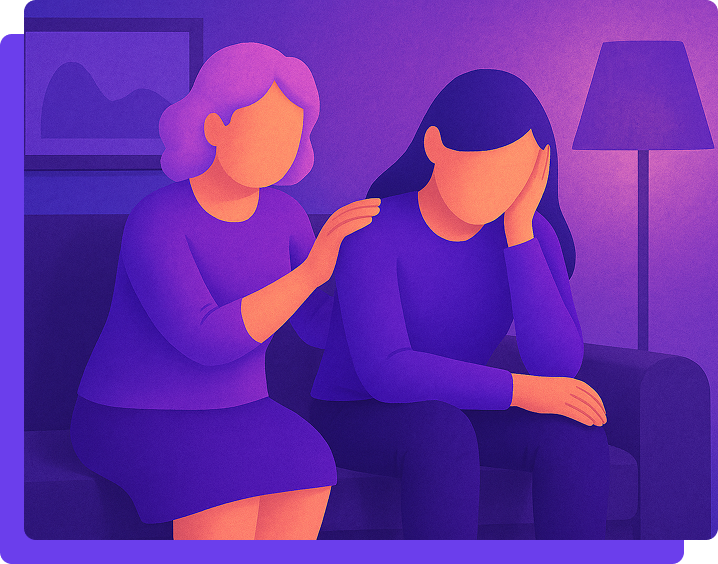
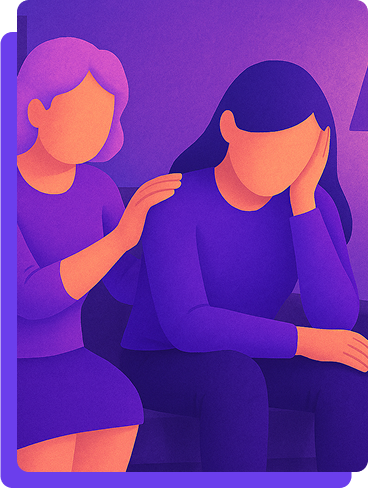
Please note that we are unable to provide immediate support. If you are going through a period of intense distress, we encourage you to seek professional assistance without delay. You may visit the emergency services at your nearest hospital or access a crisis helpline. You may find a helpline in your region on findahelpline.com.
THEOR-E is not affiliated with this service.